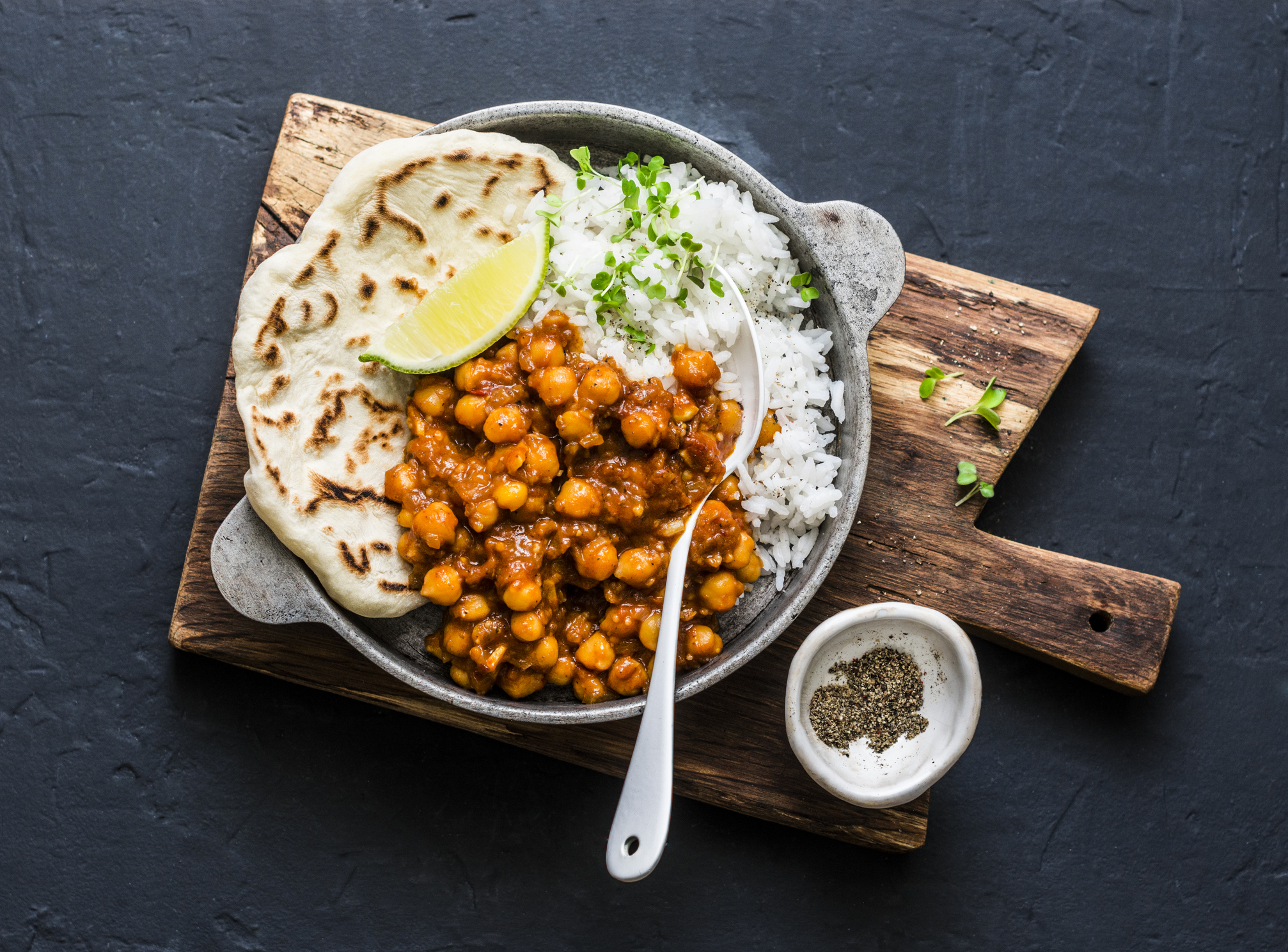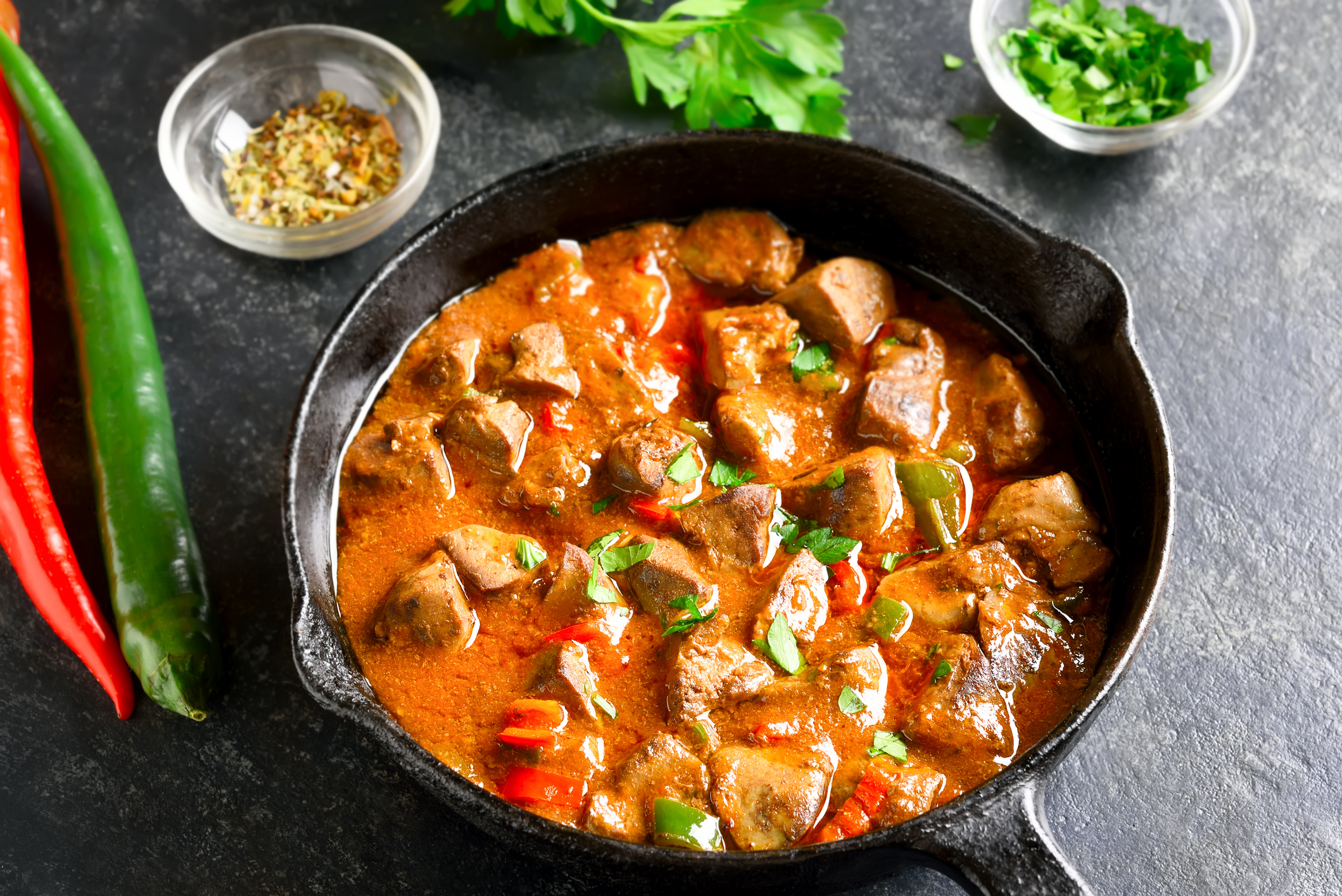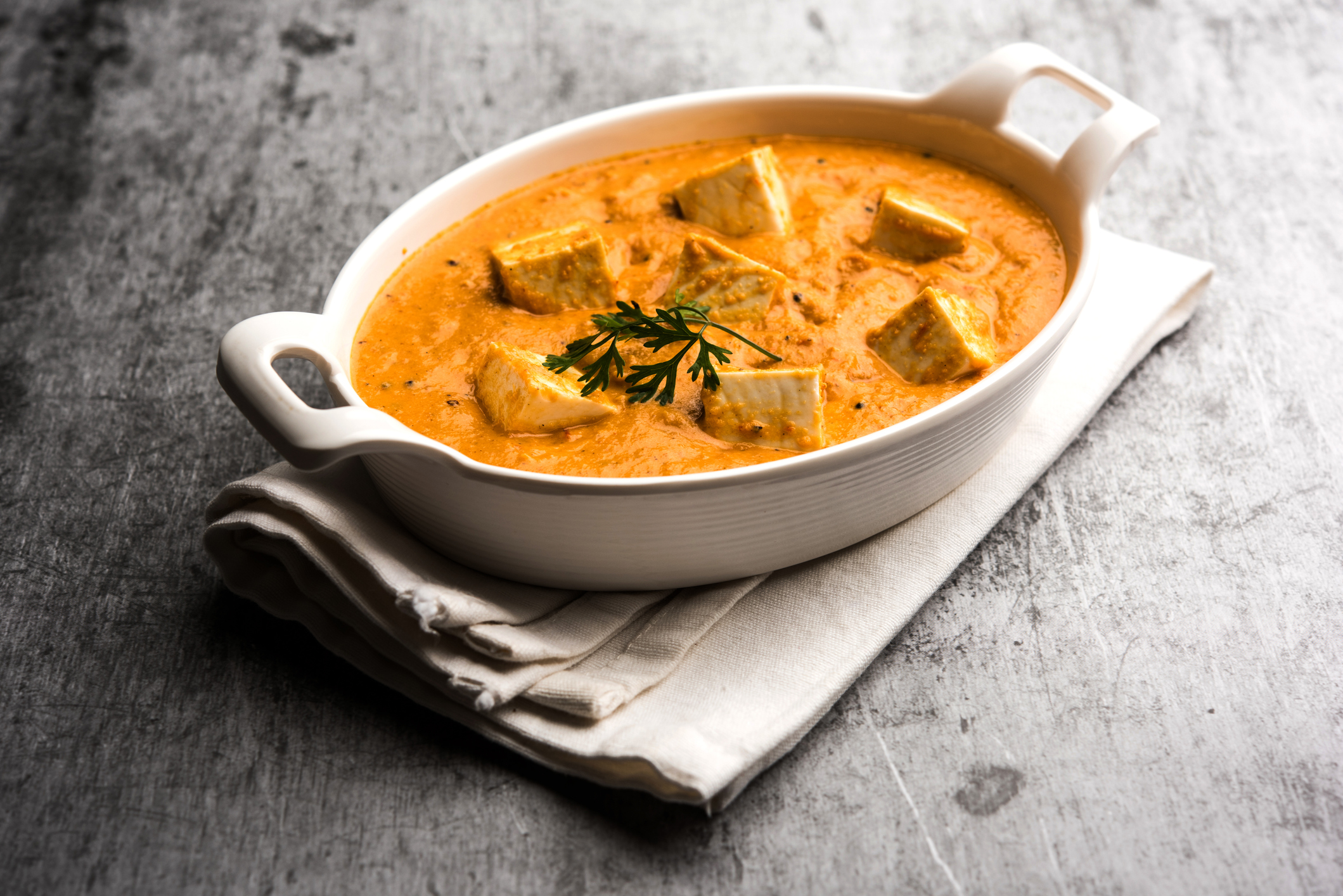
Are curries healthy?
We all eat them, but exactly how good are curries for our health? We explore the health impact of eating curry with some interesting results…
June 17th, 2021
Curries are a staple of Asian cuisine and have become extremely popular in the Western world too – Britons love flocking to Indian and Thai curry houses on the weekend, or ordering a spicy curry on takeaway nights.

But if we’re trying to be healthy and watch what we eat, can a curry stay on the menu?
Made up of meat and vegetables in a spiced sauce, usually accompanied by rice, curry can potentially claim ‘good for you’ status.
The vegetables contain lots of minerals and nutrients, and turmeric – the main spice in most curry powders – has anti-inflammatory effects.
You can thank the curcumin it contains, a compound which gives it its typically orange colour. Some believe it also helps your cardiovascular system, and could even enhance chemotherapy when treating bowel cancer.
And what’s a curry without a little heat? Chilli, the usual kick of choice, ranks high for vitamin A and vitamin C if red, yellow or green chillies are used.

What makes chilli ‘hot’ is the presence of capsaicin, a chemical that has the temporary effect of lowering blood pressure and releases endorphins, making you happier. It also has antioxidant and anti-inflammatory properties.
But there’s more: cumin is an antibacterial and antioxidant, coriander seeds and cinnamon both help reduce blood sugar levels, and the garlic found in most curries has some fantastic nutritional qualities – it reduces blood pressure, cholesterol levels and ejects viruses from our body through our respiratory tract (hence the heavy breath…).
So it’s decided, right? A curry is healthy? Well, not always…
It’s not hard to cancel out all these ‘spicy’ benefits with too much salt (it can increase blood pressure), fat and carbohydrates.

Good quality ingredients are vital and if that’s missing, curry can easily become a greasy, fattening food.
The best way to make sure your curry keeps its healthy status is to make it yourself. That way you control the ingredients that are being put into your food.
Go for something clean and light, taking all the fat off the meat and use lots of vegetables. You can also substitute the classic Jasmine or Basmati rice with wholegrain brown rice, which is high in fibre, selenium, magnesium, and antioxidants.
And if you are eating out, try to avoid curries with added cream and sugar, and it’s always good practise to watch your portions.
If you follow these simple tips, curry will become your go-to healthy dish in no time. To read more about how this delicious dish can help you eat well, have a look at our article from Seasoned Cookery school here.
